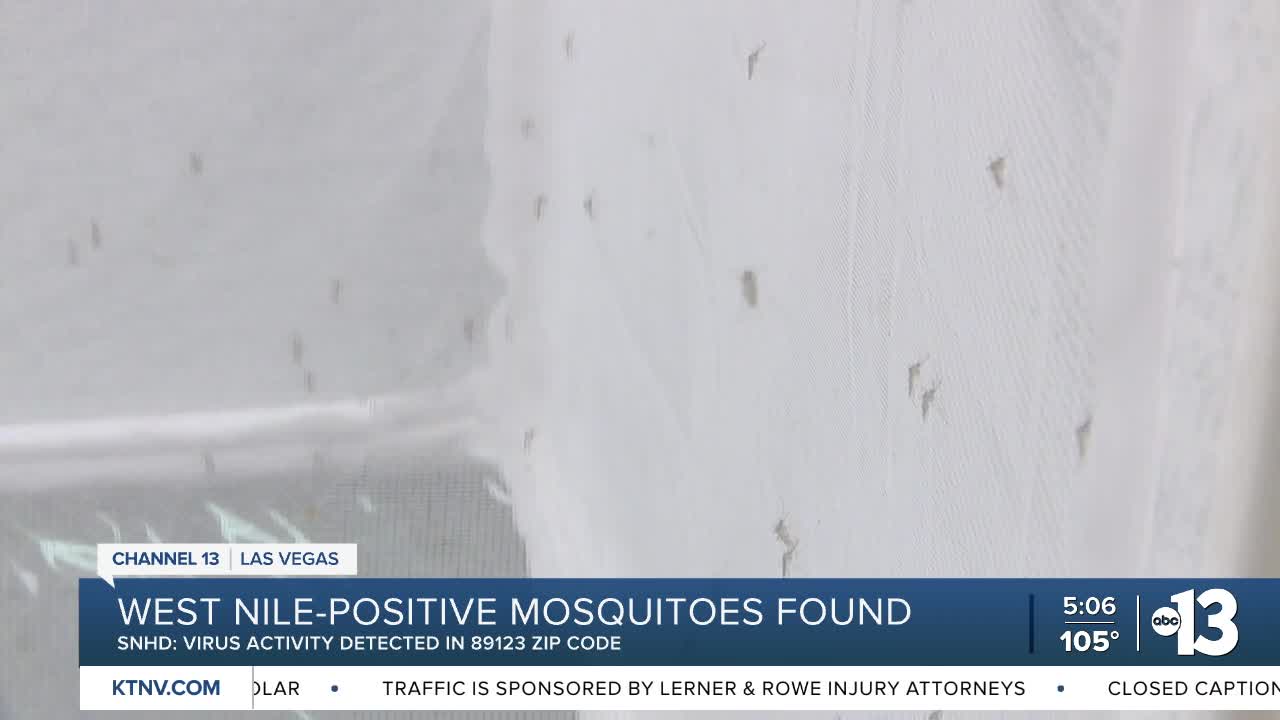LAS VEGAS (KTNV) — This mosquito season's first West Nile virus-positive bugs have been trapped in the southern Las Vegas Valley, the Southern Nevada Health District announced on Tuesday.
The first mosquito pool to test positive for West Nile virus was found in the 89123 zip code, according to a news release. Health officials say this milestone serves as a reminder for all Southern Nevada residents to "Fight the Bite" to help reduce the impact of mosquitoes in our community.
For the past several years, we've reported the concerns of locals who say mosquitoes are becoming a more persistent pest problem in our valley — and data support their observation, researchers at UNLV have told us.

Local News
Why did the local mosquito population boom this year? Experts weigh in
Last year, 26 human cases of West Nile virus were reported in Clark County, down from the peak of virus activity in 2019, when 43 human cases were reported. Virus activity was minimal in 2021, 2022 and 2023, health officials noted.
The health district launched its seasonal mosquito surveillance in April, setting more than 1,670 traps across Southern Nevada. So far this year, more than 1,800 mosquito pools have been tested, officials add.
As Channel 13 has reported, one particular breed of mosquito is believed to be largely responsible for the increase in mosquito activity in Southern Nevada over the past several years: Aedes aegypti.
WATCH | Does Southern Nevada need to do more to abate its growing mosquito problem? Experts say yes.
Unlike other mosquito species, Aedes aegypti are said to be aggressive daytime biters, and they prefer to bite humans. They are also "persistent ankle biters, and a single female can bite multiple times," health officials stated. Aedes aegypti are also better at breeding than other mosquitoes, able to reproduce in just a small amount of water.
In order to "Fight the Bite," SNHD encourages you to:
- Eliminate standing water around your home (even as much as a bottle cap of water can be enough for Aedes aegypti to breed, officials note).
- Use an FDA-registered insect repellent and wear protective clothes. (Long pants and long-sleeved shirts are often recommended when spending time in an environment where mosquitoes are a concern."
- Report mosquito activity to the Southern Nevada Health District's surveillance program by calling 702-759-1633.
- Report green pools to local code enforcement agencies.





